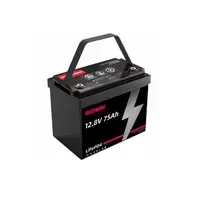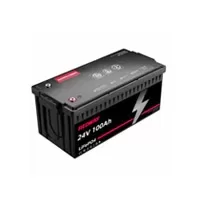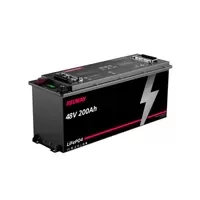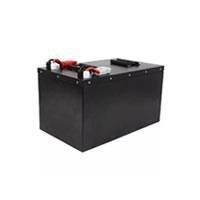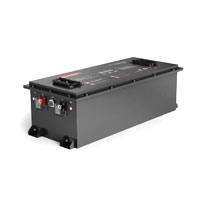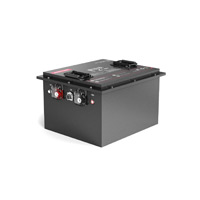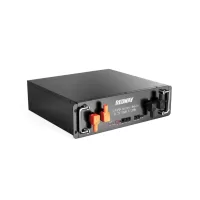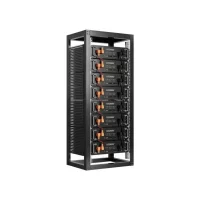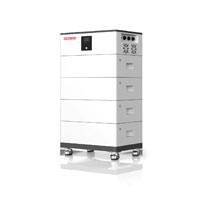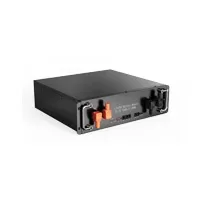Welcome to the world of batteries! In this post, we’ll focus on LiFePO4 batteries, a type gaining popularity for their lightweight and long-lasting features. Whether for your smartphone, electric vehicle, or home, join us in exploring why LiFePO4 batteries could be the superior choice for your energy needs!
Understanding Different Types of Batteries
Embarking on our battery exploration, let’s delve into the diverse types available today, catering to various needs. Here’s a quick overview:
- Alkaline Batteries: Commonly used for household devices, these are affordable and suitable for low-drain gadgets like remote controls. However, their lifespan is relatively short.
- Lithium-Ion Batteries: Highly popular for their rechargeable nature and high energy density, lithium-ion batteries power devices ranging from smartphones to electric vehicles. They’re lightweight and offer impressive performance.
- Nickel-Metal Hydride (NiMH) Batteries: Another rechargeable option with higher capacity than alkaline cells. While not as energy-dense as lithium-ion, they are a reliable choice for various applications.
- Lead-Acid Batteries: Despite being one of the oldest types, lead-acid batteries persist in automotive starting systems and backup power supplies due to their ability to deliver high currents.
Understanding the nuances of each type, including factors like cost, lifespan, capacity, and environmental impact, helps in selecting the most suitable battery technology for your specific needs. Now, let’s delve deeper into the realm of LiFePO4 batteries!
What Are LiFePO4 Batteries?
Let’s explore LiFePO4 batteries, a rising star in rechargeable battery tech:
- High Energy Density: LiFePO4 batteries excel in storing a large amount of energy relative to their compact size and weight, making them ideal for space-constrained applications like electric vehicles and portable electronics.
- Long Lifespan: Compared to other rechargeable batteries, LiFePO4 batteries endure more charge-discharge cycles without significant capacity loss, contributing to an extended operational lifespan.
- Enhanced Safety: With a lower risk of thermal runaway or combustion compared to some lithium-ion counterparts, LiFePO4 batteries prioritize safety, minimizing the chances of accidents or fires during use.
- Stability and Reliability: Boasting a stable discharge curve, LiFePO4 batteries maintain consistent voltage throughout most of their discharge cycle. This characteristic enhances accuracy in monitoring and controlling the battery’s state-of-charge.
Given these advantages, it’s no surprise that LiFePO4 batteries are gaining traction across diverse industries for their high energy density, extended lifespan, and safety features.
Advantages of LiFePO4 Batteries
Unlocking the advantages of LiFePO4 batteries:
- Longer Lifespan: LiFePO4 batteries shine with an impressive lifespan, potentially lasting over 10 years with proper care. This longevity translates to cost-effectiveness, sparing you frequent replacements.
- High Energy Density: These batteries pack a punch with high energy density, storing more power in a compact space. This feature makes them perfect for size and weight-sensitive applications like electric vehicles and portable devices.
- Enhanced Safety: Safety is paramount, and LiFePO4 batteries excel in this area. With a stable chemical composition, they pose a significantly lower risk of catching fire or exploding compared to other lithium-ion batteries prone to thermal runaway.
- Fast Charging Capability: LiFePO4 batteries impress with their ability to handle fast charging without compromising safety or performance. This makes them well-suited for applications demanding quick recharge, such as electric vehicles.
- Efficiency: Boasting low internal resistance and minimal self-discharge rates, LiFePO4 batteries outperform in energy conversion efficiency. This leads to better overall performance for your devices or systems.
- Environmentally Friendly: As eco-consciousness rises, LiFePO4 batteries stand out for being environmentally friendly. Free of toxic heavy metals and emitting no harmful substances during operation, they are a sustainable choice. Fully recyclable, LiFePO4 batteries align with green energy priorities.
Disadvantages of LiFePO4 Batteries
Understanding the Downsides of LiFePO4 Batteries:
- Low Energy Density: LiFePO4 batteries store less energy compared to other types, making them less efficient in terms of energy density for a given volume or weight.
- Higher Initial Cost: These batteries come with a higher upfront cost than traditional lead-acid batteries due to the use of more expensive materials. However, the extended lifespan and superior performance can justify the initial investment.
- Monitoring and Management Challenges: LiFePO4 batteries demand careful monitoring to avoid issues like overcharging or deep discharging, which can impact their lifespan. Neglecting proper maintenance may result in reduced battery life or damage.
- Voltage Limitations: Due to their chemistry and design, LiFePO4 batteries generally have lower voltage limits compared to some alternatives. While not an issue in many applications, this limitation may affect certain high-power scenarios where specific voltage requirements are crucial.
Despite these drawbacks, LiFePO4 batteries remain an excellent choice for diverse applications, especially in renewable energy storage and electric vehicles, thanks to their extended cycle life and reliable thermal stability.
Comparison with Other Battery Types
Comparing LiFePO4 Batteries with Other Types:
- Extended Lifespan: LiFePO4 batteries outshine traditional lead-acid batteries with a lifespan of over 10 years, compared to the typical 3-5 years for lead-acid. This longevity not only saves costs but also minimizes environmental impact by reducing battery replacements.
- High Energy Density: LiFePO4 batteries excel in energy storage, offering greater capacity in a smaller and lighter package compared to nickel-cadmium (NiCd) or nickel-metal hydride (NiMH) batteries. This makes them optimal for space-constrained or weight-sensitive applications.
- No Memory Effect: Unlike lead-acid or NiCd batteries, LiFePO4 batteries don’t suffer from memory effect. You can recharge them at any point without fully discharging, ensuring convenient and efficient usage without compromising performance.
- Enhanced Safety Features: In comparison to widely used lithium-ion (Li-ion) batteries, LiFePO4 technology prioritizes safety. Its stable chemistry and resistance to extreme conditions reduce the risk of fire or explosion, making them a safer choice, especially for applications like electric vehicles.
Despite different battery types having their own characteristics, LiFePO4 batteries stand out as a reliable and efficient option, offering a balanced combination of lifespan, energy density, and safety features.
Applications and Uses for LiFePO4 Batteries
Applications of LiFePO4 Batteries:
- Electric Vehicles (EVs) and Hybrid Electric Vehicles (HEVs): LiFePO4 batteries are widely used in EVs and HEVs, providing a reliable and long-lasting power source for efficient and environmentally friendly transportation.
- Renewable Energy Systems: These batteries serve as effective storage devices for solar panels and wind turbines, ensuring efficient storage and utilization of excess energy during peak production periods.
- Off-Grid Solutions: LiFePO4 batteries are popular for off-grid applications like RVs, boats, camping equipment, and portable devices. Their lightweight design makes them portable, offering reliable power for various needs in remote locations.
- Telecommunications Infrastructure: LiFePO4 batteries play a crucial role in providing backup power for cell towers during outages or unstable grid conditions, ensuring uninterrupted communication services.
- UPS Systems and Medical Devices: Used in Uninterruptible Power Supply (UPS) systems, as well as medical devices like portable oxygen concentrators and defibrillators, LiFePO4 batteries offer a dependable power source for critical applications.
- Military Operations: LiFePO4 batteries are chosen for military operations due to their ruggedized design, withstanding harsh environments and providing reliable power in challenging conditions.
The versatile nature of LiFePO4 batteries makes them essential across various industries, offering efficient, reliable, and sustainable power solutions.


